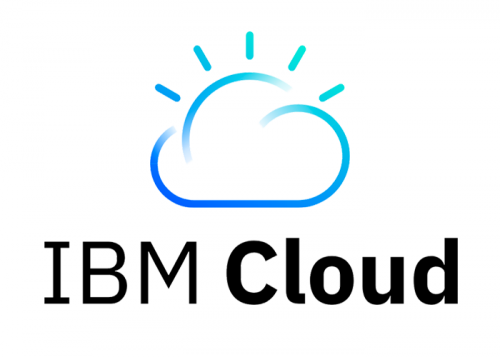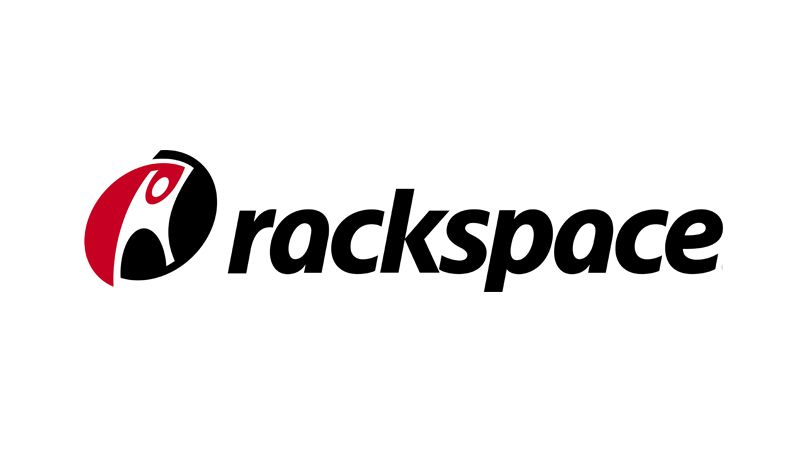8 Best Postgres Cloud Providers

PostgreSQL is a popular open-source database management system that is widely used for a variety of applications. As such, many organizations choose to host their PostgreSQL databases in the cloud to benefit from the scalability, reliability, and security that cloud hosting can provide.
This article will provide an in-depth review of the top 10 cloud providers for hosting a PostgreSQL database. We will cover each provider's features, pricing, benefits, and critical factors when choosing a cloud provider for your PostgreSQL database. Whether a small business or a large enterprise, this article will help you decide on the best cloud provider for your PostgreSQL database needs.
1) Amazon Web Services (AWS)
AWS offers a fully managed PostgreSQL service called Amazon RDS for PostgreSQL. It allows users to set up, operate, and scale PostgreSQL deployments with just a few clicks. Amazon RDS for PostgreSQL automatically patches the database software and backs up your data, allowing you to focus on your applications.

AWS also offers the option to scale your PostgreSQL database up or down based on your needs. There are six key benefits to using AWS to host your Postgres database:
- Scalability: AWS offers the ability to scale your PostgreSQL database up or down based on your workload, which can help reduce costs and ensure that you have the necessary resources to handle changes in demand.
- High availability and disaster recovery: AWS offers options for ensuring high availability and disaster recovery for your PostgreSQL database, including the ability to replicate data across multiple Availability Zones.
- Automated backups and recovery: AWS automatically backs up your PostgreSQL database and offers point-in-time recovery options, which can help protect against data loss and corruption.
- Security: AWS offers a variety of security measures to protect your PostgreSQL database, including encryption at rest and in transit, as well as network isolation.
- Expert support: AWS offers expert support and consultation services for PostgreSQL, which can be helpful if you encounter any issues or have questions about your database.
- Integration with other AWS services: AWS offers a wide range of services and tools that can be easily integrated with your PostgreSQL database, including analytics, machine learning, and security services.
As Silvester says, it's not all sunshine and rainbows. There are a few drawbacks to using AWS for hosting a Postgres DB. They are:
- Cost: While AWS offers a variety of pricing options for its PostgreSQL hosting service, Amazon Relational Database Service (RDS), it can still be more expensive than some other cloud providers or on-premises hosting options.
- Limited control: As a fully managed service, AWS RDS for PostgreSQL provides limited control over the underlying infrastructure and database configuration. This can make it more difficult to customize or fine-tune your database setup.
- Limited compatibility: AWS RDS for PostgreSQL may not support all PostgreSQL features and extensions, which could limit the functionality of your database.
- Dependence on AWS: Hosting your PostgreSQL database on AWS means that you are reliant on the availability and performance of the AWS platform. If there are issues with AWS, it could impact the availability of your database.
Overall, using PostgreSQL hosted on AWS can provide organizations with a scalable, secure, and reliable platform for their database needs.
2) Microsoft Azure
Microsoft Azure offers a fully managed PostgreSQL service called Azure Database for PostgreSQL. It provides built-in high availability and disaster recovery, automated backups and point-in-time restore capabilities. Azure also offers a serverless option for PostgreSQL, called Azure Database for PostgreSQL Hyperscale (Citus), which allows users to scale out their database across multiple nodes elastically.

Benefits of Azure
- Scalability: Azure allows you to quickly scale your PostgreSQL database up or down based on your workload needs without the need to provision or manage any additional hardware.
- High availability: Azure offers a range of options for ensuring the availability of your PostgreSQL database, including creating replicas and using failover groups to automatically failover to a secondary server in the event of an outage.
- Security: Azure provides several security features to help protect your PostgreSQL database, including network isolation, data encryption at rest and in transit, and integration with Azure Active Directory for secure access control.
- Management: Azure provides several tools and services to help you manage your PostgreSQL database, including the Azure Portal, Azure CLI, and Azure PowerShell, as well as integration with popular database management tools like Azure Data Studio and pgAdmin.
- Cost: Azure offers several pricing options for hosting a PostgreSQL database, including the ability to pay as you go or purchase a reserved capacity, which can help you save money by committing to a longer term.
Drawbacks of hosting on Azure
- Complexity: Setting up and managing a PostgreSQL database on Azure can be more complex than hosting it on-premises, as you need to be familiar with Azure's various services and features.
- Limited control: When hosting a database on Azure, you have less control over the underlying infrastructure and may not be able to customize certain aspects of the database setup.
- Dependency on Azure: Hosting your database on Azure means that you depend on Azure's services and infrastructure, which can be a concern regarding reliability and availability.
3) Google Cloud Platform (GCP)
GCP offers a fully managed PostgreSQL service called Cloud SQL for PostgreSQL. It allows users to quickly set up, maintain, manage, and administer their PostgreSQL databases. Cloud SQL for PostgreSQL offers high availability, backup, disaster recovery options, and the ability to scale up or down based on your workload.

Benefits of using GCP
- Scalability: GCP allows you to quickly scale your PostgreSQL database up or down as needed without purchasing and managing additional hardware.
- High availability: GCP provides options for high availability and failover for your PostgreSQL database to ensure that it is always available to your users.
- Performance: GCP offers a variety of options for hosting a PostgreSQL database, including the opportunity to use Cloud SQL, a managed database service optimized for performance.
- Security: GCP has a strong focus on security and provides several features to help secure your PostgreSQL database, such as encryption at rest and in transit, as well as advanced authentication options.
- Integration with other GCP services: Hosting your PostgreSQL database on GCP allows you to easily integrate it with other GCP services, such as BigQuery and Cloud Functions, which can make it easier to build and manage your applications.
Drawbacks of GCP
- Limited control: When hosting a database on GCP, you have less control over the underlying infrastructure and may not be able to customize certain aspects of the database setup.
- Dependency on GCP: Hosting your database on GCP means that you depend on GCP's services and infrastructure, which can be a concern regarding reliability and availability.
- Compatibility issues: If you use specific PostgreSQL extensions or custom configurations, they may not be fully supported on GCP, limiting your ability to use certain features or functionality.
4) IBM Cloud
IBM Cloud offers a fully managed PostgreSQL service called IBM Cloud Databases for PostgreSQL. It provides high availability, automated backups, point-in-time recovery, and the ability to scale up or down based on your workload. IBM Cloud also offers the option to deploy PostgreSQL on IBM Cloud Kubernetes Service, allowing users to run their database in a containerized environment.

- Security: IBM Cloud has a strong focus on security and provides several features to help secure your PostgreSQL database, such as encryption at rest and in transit, as well as advanced authentication options.
- Integration with other IBM Cloud services: Hosting your PostgreSQL database on IBM Cloud allows you to easily integrate it with other IBM Cloud services, such as IBM Watson, making it easier to build and manage your applications.
There are also a few potential drawbacks to consider when hosting a PostgreSQL database on IBM Cloud:
- Cost: Depending on the size and usage of your database, hosting it on IBM Cloud may be more expensive than hosting it on-premises or using another cloud provider.
- Complexity: Setting up and managing a PostgreSQL database on IBM Cloud can be more complex than hosting it on-premises, as you need to be familiar with IBM Cloud's various services and features.
- Limited control: When hosting a database on IBM Cloud, you have less control over the underlying infrastructure and may not be able to customize certain aspects of the database setup.
- Dependency on IBM Cloud: Hosting your database on IBM Cloud means that you are dependent on IBM Cloud's services and infrastructure, which can be a concern in terms of reliability and availability.
Oracle Cloud offers a fully managed PostgreSQL service called Oracle Cloud Service for PostgreSQL. It provides high availability, backup, and recovery options and the ability to scale up or down based on your workload. Oracle Cloud also offers the opportunity to deploy PostgreSQL on Oracle Cloud Infrastructure, allowing users complete control over their database infrastructure.
6) Rackspace
Rackspace offers a fully managed PostgreSQL service called Rackspace Managed PostgreSQL. It provides high availability, automated backups, recovery options, and the ability to scale up or down based on your workload. Rackspace also offers expert PostgreSQL support and consultation services.

The key benefits of using Rackspace are:
- Expertise: Rackspace has a team of experts who can help you design, deploy, and manage your cloud infrastructure. This can be especially useful if you don't have the in-house expertise or resources to manage your infrastructure.
- Managed services: Rackspace offers a range of managed services, including managed security, managed databases, and organised networking, which can help you save time and resources by outsourcing routine maintenance tasks to Rackspace's team of experts.
- Flexibility: Rackspace offers a variety of cloud hosting options, including public cloud, private cloud, and hybrid cloud, so you can choose the solution that best fits your needs.
- Scalability: Rackspace's cloud infrastructure is highly scalable, so you can easily add or remove resources as needed to meet the changing needs of your business.
- Security: Rackspace's cloud infrastructure is designed with safety in mind and includes network segmentation, firewalls, and encryption to help protect your data and applications.
Overall, Rackspace can be a good choice if you are looking for a managed cloud hosting provider with a range of services, expertise, and security measures to help you build and run your applications in the cloud.
7) Heroku
Heroku is a cloud platform that offers a fully managed PostgreSQL service called Heroku Postgres. It provides high availability, automated backups, recovery options, and the ability to scale up or down based on your workload. Heroku also offers easy integration with other Heroku services and tools.

Benefits of using Heroku:
- Simplicity: Heroku handles your infrastructure and maintenance, so you can focus on developing and deploying your application.
- Scalability: Heroku Postgres allows you to scale your database up or down quickly as your needs change.
- Reliability: Heroku Postgres provides high availability and failover capabilities to ensure your database is always online and responsive.
- Security: Heroku Postgres uses advanced security measures to protect your data, including encryption at rest and in transit and regular security patches.
- Integration: Heroku Postgres integrates seamlessly with other Heroku services and popular tools like GitHub and Slack.
- Support: Heroku provides extensive documentation and 24/7 support to help you get started and troubleshoot any issues that may arise.
There are a few drawbacks too...
- Limited customization: Because Heroku manages your infrastructure, you may have less control over the configuration of your database and may not be able to customize specific settings or features to your liking.
- Dependency on Heroku: If you use Heroku Postgres, you will rely on the platform for your database needs. This means that if there are any issues with Heroku's service, it could affect the availability and performance of your database.
- Limited flexibility: Heroku Postgres only supports the PostgreSQL database engine, so if you want to use a different database engine, you will need to look for another solution.
8) DigitalOcean
DigitalOcean offers a fully managed PostgreSQL service called DigitalOcean Managed Databases for PostgreSQL. It provides high availability, automated backups, recovery options, and the ability to scale up or down based on your workload. DigitalOcean also offers a variety of tools and resources for managing and optimizing PostgreSQL databases.

Benefits of using DigitalOcean:
- Cost: DigitalOcean is generally known for its competitive pricing, making it a more cost-effective option than other cloud infrastructure providers.
- Customization: DigitalOcean gives you more control over the configuration of your database instance, allowing you to customize settings and features to your liking.
- Scalability: DigitalOcean allows you to scale your database instance up or down quickly as your needs change.
- Reliability: DigitalOcean has a track record of high uptime and performance, making it a reliable option for hosting your database.
- Integration: DigitalOcean integrates with a wide range of tools and services, making it easy to set up and manage your database.
- Support: DigitalOcean provides extensive documentation and 24/7 support to help you get started and troubleshoot any issues that may arise.
How to choose?
In addition to the above options, many other cloud providers offer PostgreSQL hosting services. It is essential to carefully evaluate the features and pricing of each provider to determine the best fit for your specific needs and budget.
When choosing a cloud provider for hosting a PostgreSQL database, some key factors to consider include the following:
- Managed vs unmanaged: Some cloud providers offer fully managed PostgreSQL hosting services, while others provide unmanaged options where you are responsible for maintaining and administering your database. If you don't have the resources or expertise to manage your database, a fully managed option may be better.
- Scalability: Choosing a cloud provider that can scale your PostgreSQL database up or down based on your workload is essential. This ensures that you have the necessary resources to handle changes in demand without incurring unnecessary costs.
- High availability and disaster recovery: Look for a cloud provider that offers options for ensuring high availability and disaster recovery for your PostgreSQL database. This can help protect against outages and data loss.
- Backup and recovery: Choose a cloud provider that offers automated backup and recovery options for your PostgreSQL database. This can help ensure that you can recover from data loss or corruption.
- Support and consultation: Some cloud providers offer expert support and consultation services for PostgreSQL, which can be helpful if you encounter any issues or have questions about your database.
Conclusion
In conclusion, many cloud providers offer hosting services for PostgreSQL databases. Some top options include Amazon Web Services, Microsoft Azure, Google Cloud Platform, IBM Cloud, Oracle Cloud, Rackspace, Heroku, DigitalOcean, Joyent, and SkySQL. Each of these providers offers a variety of features and pricing options, so it is essential to carefully evaluate your specific needs and budget when choosing a cloud provider for your PostgreSQL database.
Some key factors include manageability, scalability, high availability and disaster recovery, backup and recovery options, and support and consultation services. Ultimately, the best cloud provider for your PostgreSQL database will depend on your specific requirements and priorities.
